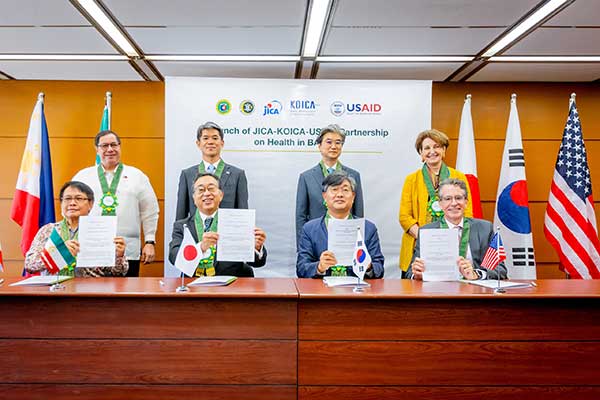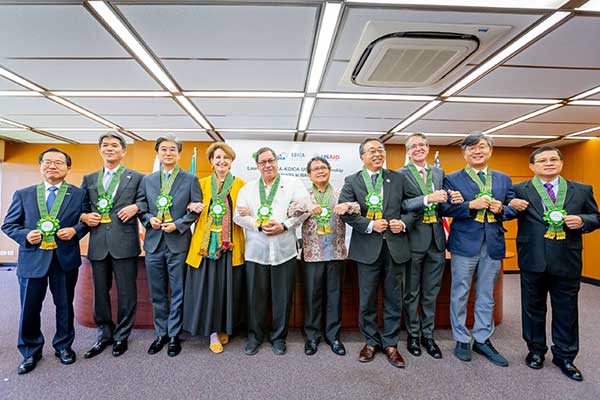MANILA — Development agencies from Japan, South Korea, and the United States have signed a Php1.6 billion ($29 million) partnership to strengthen healthcare in the Bangsamoro Autonomous Region in Muslim Mindanao (BARMM), marking the first health-focused collaboration between these nations in the Asia-Pacific region.
The Memorandum of Cooperation, signed on September 27 at the Philippine International Convention Center, outlines a five-year plan to improve health outcomes in BARMM, advance Universal Health Care, and address the region’s pressing healthcare challenges. The partnership involves the Japan International Cooperation Agency (JICA), the Korea International Cooperation Agency (KOICA), and the United States Agency for International Development (USAID), which will work closely with the BARMM Ministry of Health, the Department of Health (DOH), local communities, and other key stakeholders.
“We aim to promote a more resilient and efficient regional healthcare system accessible to the community and the vulnerable groups within the region,” said Japanese Ambassador Endo Kazuya during the ceremony. “Our efforts reflect Japan’s long-standing commitment to human security and peace-making efforts within the BARMM.”
The initiative will target a broad range of health issues, including improving health information systems, increasing public health financing, promoting good public health practices, expanding access to quality healthcare services, and enhancing the availability of essential medicines and equipment.
“Korea’s experience rising from the ashes of war to prosperity drives our commitment to supporting peace and development,” said KOICA Vice President Kim Dong Ho. “KOICA will play a crucial role in delivering vital maternal and child health services, strengthening health systems, and improving emergency readiness.”
USAID Philippines Mission Director Ryan Washburn echoed the importance of the partnership in addressing key health needs in the region. “Through this partnership, we envision a future where mothers and their children are in the care of highly capable professionals; where TB patients receive treatment; and where families are protected from infectious diseases and pandemic threats,” said U.S. Ambassador MaryKay Carlson.
Expanding Programs for Long-term Stability
The partnership will see JICA, KOICA, and USAID expanding their priority health programs in BARMM. JICA’s focus will be on advancing maternal and newborn health, strengthening community health services, and promoting facility-based deliveries. KOICA will emphasize sustainable health financing through PhilHealth, upgrade health facilities and equipment, and enhance emergency preparedness. USAID will concentrate on enhancing the delivery of family planning, reproductive health, and tuberculosis programs, as well as strengthening health systems.
BARMM Health Minister Kadil Sinolinding, Jr. expressed optimism about the impact of the collaboration. “The Memorandum of Cooperation is a call to action and a commitment to harness the collective power of our organizations to create a healthier, more equitable, and more prosperous Bangsamoro,” he said.
Supporting Vulnerable Communities
Beyond direct healthcare services, the partnership also aims to train local governments and communities to extend health outreach to vulnerable populations, laying the foundation for long-term stability in BARMM. These efforts align with United Nations Security Council Resolution 1325, which emphasizes the role of women in peace and security.
The collaboration reinforces the collective goal of advancing Universal Health Care and achieving sustainable development goals in health, as emphasized by DOH Secretary Dr. Teodoro Herbosa.
“This collaboration reinforces the shared journey towards our vision of Universal Health Care and sustainable development goals for health,” Herbosa said.























